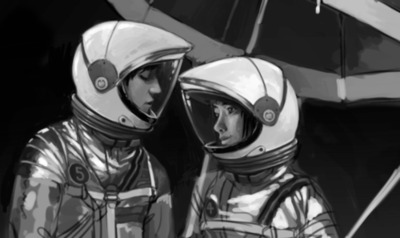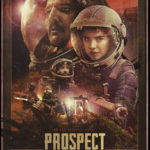Speculative Love, Part 1: No Greater Love
 Okay, here we go. Keep your seatbelts fastened and your arms and legs inside the car for the duration of the ride.
Okay, here we go. Keep your seatbelts fastened and your arms and legs inside the car for the duration of the ride.
When I introduced this series last week, Galadriel made what I thought was a rather perceptive comment: “I don’t understand the point of a ‘speculative love ‘ story…”
Indeed. What’s speculative about love?
Nothing.
Love is an objective virtue. It doesn’t change. In 2011, Mirriam Webster breaks down the definition of love pretty much the same way people have from the dawn of time. Christians believe that God is the summit and source of all love, and our capacity to love is a result of being created in His image. The Apostle Paul lays out the Christian perspective on love in I Corinthians 13. If you haven’t read it recently, please, do so. You’ll be glad you did.
Now, the rituals, expressions, and other frou-frou we wrap around the concept of love change all the time, and that can make our perception of love confusing. Love is also an emotional virtue, and emotions can be confusing. We find it difficult to distinguish between love and the desire to be loved—or to be in love. As a result, we do a lot of stupid things and blame them on love.
Getting back to the speculative part, if real love isn’t constrained by time or place, and is unfailing and unchanging in nature, why would we bother making it the centerpiece of a science fiction, fantasy, or other speculative story? There are so many spaceships and aliens and wizards and dragons and wars both interdimensional and interplanetary to write about. Oh, there might be a strong friendship or even a romance on the side, maybe to give the hero something to fight for or to provide an opportunity for a little sexual spice to keep the reader engaged. Love is useful as an accessory, but as the main event? Please. There’s a rack for those sorts of stories over there in the corner.
Of course, the point of writing on this topic is that I don’t believe that. I think the point of speculative fiction is to take our familiar humanity somewhere extraordinary. In the process, we learn that what is right and good and true is still valid years into the future, or on an alien planet, or in a universe where trees can talk and horses can fly. Love is so central to our existence and identity as human beings that a story which doesn’t on some level grapple with what love means, and how it helps make us more than well-dressed animals, is missing something important and compelling.
 Here’s an example, and all you literary buffs can freely roll your eyes: Star Trek (the original series), Episode 63, “The Empath.” This story has an interesting background. It was one of only four fan-written Trek screenplays that made it to production. It quotes the Bible–twice. DeForest Kelly (Dr. McCoy) said it was his favorite episode.
Here’s an example, and all you literary buffs can freely roll your eyes: Star Trek (the original series), Episode 63, “The Empath.” This story has an interesting background. It was one of only four fan-written Trek screenplays that made it to production. It quotes the Bible–twice. DeForest Kelly (Dr. McCoy) said it was his favorite episode.
There’s not a bit of romance in it, but it’s all about love.
You can read the synopsis here, but I’ll give you the condensed version. The U.S.S. Enterprise is on a routine mission to pick up a couple of scientists from a planetary outpost where they’re studying a star about to go supernova. The scientists don’t answer the radio when Enterprise arrives, so Kirk, Spock, and McCoy beam down to investigate. They find the lab vacant, but are shortly thereafter transported against their will to an alien research facility deep underground. The nature of the research is a mystery, but when they find the two Federation scientists there, dead, they figure it must be something less than pleasant.
 They also find a mysterious young woman there. She’s painfully timid, and mute. They gain her trust, and McCoy dubs her “Gem,” which he decides is better than “Hey, You.” Anyhow, Kirk is zapped away for a few hours and returns somewhat the worse for wear after receiving the alien equivalent of the rubber hose treatment. Gem heals his injuries, and they discover that she is an empath, able to link her nervous system and life force to another person and take on herself whatever ails them, then restore herself. It takes a lot out of her, which explains her timidness. She can die working this little trick.
They also find a mysterious young woman there. She’s painfully timid, and mute. They gain her trust, and McCoy dubs her “Gem,” which he decides is better than “Hey, You.” Anyhow, Kirk is zapped away for a few hours and returns somewhat the worse for wear after receiving the alien equivalent of the rubber hose treatment. Gem heals his injuries, and they discover that she is an empath, able to link her nervous system and life force to another person and take on herself whatever ails them, then restore herself. It takes a lot out of her, which explains her timidness. She can die working this little trick.
Eventually, the aliens explain that their project is designed to test the worthiness of Gem’s race for rescue from the supernova. She has to demonstrate an advanced level of compassion–but her innate instinct for self-preservation makes this difficult. The aliens announce another test. Kirk must send either Spock or McCoy into their torture chamber, but McCoy will certainly die, and Spock, if he survives, will sustain irreversible brain damage. Here’s where it gets interesting. As Kirk ponders his decision, McCoy injects him with a sedative, then catches Spock off-guard and does the same thing to him. McCoy tells the aliens he’s the chosen victim, and they take him away.
Anybody with a passing acquaintance with Star Trek knows that the relationship between Kirk, Spock, and McCoy transcends the military chain of command, and even goes beyond a sense of simple friendship or comradeship. This is love, and here it’s in full view. McCoy can’t allow either of his friends to risk death. Instead, he offers himself up to die in their place, not out of duty, or logic, or desire for approval, but love. As Jesus tells us in John 15:13, “Greater love hath no man than this, that a man lay down his life for his friends.”
 It doesn’t end there. McCoy comes back beaten almost beyond recognition, at death’s door, and the aliens confine Gem with him and wait to see what she’ll do. She’s in agony. She wants to help, but she knows she’ll die if she does. Finally, she touches him, but recoils. The aliens are ready to give up on her, but she comes back and begins to heal McCoy, who flings her away once he’s recovered enough strength to do so.
It doesn’t end there. McCoy comes back beaten almost beyond recognition, at death’s door, and the aliens confine Gem with him and wait to see what she’ll do. She’s in agony. She wants to help, but she knows she’ll die if she does. Finally, she touches him, but recoils. The aliens are ready to give up on her, but she comes back and begins to heal McCoy, who flings her away once he’s recovered enough strength to do so.
I won’t spoil the ending if by some chance you haven’t seen this episode, but suffice it to say that McCoy’s act of self-sacrificial love isn’t merely a noble gesture. It inspires Gem to overcome her fear and shames the aliens’ hypocritical experiment. It demonstrates that love has the power to transform lives. Star Trek frequently, perhaps more often than not, gets love wrong, but in this instance, I think it’s right on the mark.
So, our brave Dr. McCoy did good. He achieved the supreme expression of unselfish love, right?
Well, almost. As I mentioned at the beginning, Christians believe that God is the summit and source of all love. In the person of Jesus Christ, He displayed a love that is mirrored only imperfectly in the fictional example. Jesus exceeded the greatest love possible for a man because He didn’t stop with laying down his life for his friends. He laid his life down for his enemies–freely, purposefully, without any assurance that his sacrifice would be appreciated or his love returned. As Paul tells us in Romans 5:7-8, “Very rarely will anyone die for a righteous person, though for a good person someone might possibly dare to die. But God demonstrates his own love for us in this: While we were still sinners, Christ died for us.” And that love is even more transforming: “For if, while we were God’s enemies, we were reconciled to him through the death of his Son, how much more, having been reconciled, shall we be saved through his life!” (Romans 5:10) Part of that transformation is to follow Jesus’ example: “But to you who are listening I say: Love your enemies, do good to those who hate you, bless those who curse you, pray for those who mistreat you.”(Luke 6:27-28)
So, there’s a start. I’m sure our readers can come up with more and better examples of self-sacrificial love illustrated in speculative fiction, and please do so.
Next time, The Mushy Stuff!









































Great article! I think this series is off to a great start!
In I, Robot, by Asimov, half the robots in the stories are motivated by love. It leaves you wondering if this love is merely the robot adhering to the First Law (don’t harm human or allow a human to be harmed) or if this love arose from simply following the First Law.
Robots are a really interesting way of exploring love, because love is a completely foreign concept to a machine. And science would like to tell us that we’re only machines made of cells. So how does love come into it? I think that’s one reason I love robots (like that brilliant cartoon The Iron Giant). When they’re good, they’re very very good, and when they’re bad, they’re horrid. 🙂
Stories about sentient robots often include the robot’s dawning comprehension of love and other emotions, as one of the defining characteristics of a living being. In a single stroke, this reinforces the importance of love and explores what it really means to love. The Iron Giant is a great example, as is another story by Isaac Asimov, The Bicentennial Man.
Great post, Fred. I’m glad you anchored your thoughts in Scripture and pointed to God as the summit and source of it. (Great phrasing). I like that example you used from Star Trek. I think I remember how it ended.
You’re right to say that that TV program didn’t get love right very often, and my guess is they probably would resist the idea that this particular episode was about love. No, they’d say, it was about friendship. I think our culture has a very narrow view of love.
Recently one of Sarah Sawyer‘s commenters mentioned that even literature written for the young plays up romantic love — something far advanced from their target audience’s experience. Instead, what they should capitalize on is familial love or friendship. But I’m guessing our culture hardly recognizes those as love any more. 🙁
Becky
This is one area where I’m really frustrated by the imprecision of an English word which relies heavily on modifiers to be properly understood in context. Friendship often matures into love, moving from affinity to affection, and at some point that affection is strong enough to be called “love.” I agree that modern society has muddled love and sexuality to the point that it becomes hard to think about one without the other, though I don’t think that’s anything new. I expect talking about a non-sexual love between men who aren’t family probably qualifies me as an alien life form, at least in the U.S.
Interestingly, Mirriam-Webster’s first definition for love is the “strong affection” variety, equivalent to the Greek storge.
In the comment you quoted, I was referring mostly to romantic (ie ‘kissyface’) love, not the friendship love. Friendship love is severly overlooked in all fiction fields today, not just fantasy and sci-fi. To add to the TV examples, I will refer to my current obssession: Doctor Who. In both the classic and revived series, the Doctor has strong, sacrificial love for his friends. Four introduces Sarah Jane as “my best friend,” and Eleven gets seriously angry when his friends are threatened–witness this speech from “A Good Man Goes to War”
Those words: “Run away.” I want you to be famous for those exact words. I want people to call you “Colonel Run Away.” I want children laughing outside your door because they’ve found the house of Colonel Run Away. And when people come to you and ask if trying to get to me through the people I love (deep breath)is in any way a good idea… I want you to tell them your name.
Ten has a similiar quote. It can overlap with romantic love, but I think it speaks to all his relationships with humans:
They leave. Because they should or because they find someone else. And some of them, some of them … forget me. I suppose in the end, they break my heart.
-The Next Doctor
One issue that I think speculative fiction needs to explore more is the problems that can arise with love between different races/species/cultures, especially when one has a far longer lifespan than the other
Props for the quote. The Doctor has had some real zingers in the last few seasons. Kind of like the I Have the Pandorica speech. 🙂
I was going to add River’s quote from Impossible Astronaut, but I think I’ll wait till the appropriate post.
Nice example from another fine Doctor. Hang in there, the kissyface is coming. 🙂
Every time somebody comes up with a new issue (like the robots, or the interspecies/differing lifespan problem), another Star Trek example comes to mind. I’m going to try to keep this from turning into a walk down Trek memory lane, but it’s gonna be tough. : P
Kissyface is okay in some situations.
…. The word “kissyface” amuses me greatly. 😀
Whenever people start talking about love outside of a romantic context, I always think about Cicero, who wrote on friendship.
To be honest, I’ve never thought of love in that way when I’ve written. Looking back, two of my main characters, the center of almost all my long fiction, are best friends. They save each other, they help each other. I just never thought of that as writing love in any sense, I guess it just seemed natural for friends to act as such.
I thought of a speculative fiction book on love. I believe it is t the center of the story and in the series reaches towards the loving your enemy piece you talked about here. Leave it to Ted Dekker to write it. It is the Circle Trilogy, Black, Red and White.
Just one thought … I would strongly question whether Jesus had no idea whether His giving His life would “work,” or if He was really so duty-driven as that. Citation:
Moreover, Christ Himself spoke confidently — overtly and in parables — of how His disciples would do greater things (in many respects!) than He did, and that they would take the Kingdom into the world and it would result in an incredible harvest. It seems He fully expected to fulfill His crucial role in His Father’s plan to redeem His people.
His love was motivated by that greater desire: to glorify His Father, and to receive His subsequent exaltation. That doesn’t make His sacrifice any less sacrificial, though; if anything it enhances its worth, even in our limited minds, and especially because Christ Himself encouraged His listeners not to ignore the idea of rewards or pretend we don’t care about that sort of thing, but to seek the best reward — the Kingdom, God Himself.
But, I put that likely-slightly minor quibble first, because I wanted to praise this:
I am so glad you pointed that out, because I think it sometimes goes un-commented upon during discussions about sacrificial themes and “Christ-figures” in stories. I doubt Christians would reject this concept if someone showed them; they just don’t think about it when they praise a story for its “greater love hath no man than this” messages. It’s the fact that in most good stories, the heroes die or otherwise sacrifice for their friends. That’s based on Biblical truth, for sure (John 15:13). But Jesus died for His enemies, yet to cause them to become His friends in the future.
So, did Christ die for His friends or for His enemies? Both.
Very rarely does a fictitious hero approach that. I can think of Aslan, perhaps. And a more-recent example might be Thor, in the recent Marvel film, just on DVD, yesterday. (Slight spoilers here.) Like many heroes, Thor lays down his life for his friends, and then later is shown sacrificing, not his life, but something very valuable to him, in order to save not his friends, but the very enemies he and others battled earlier in the film.
As one reviewer said: “We’ve been conditioned to see heroes make sacrifices for their friends or values. But when Thor sacrifices something of great value to save his eternal enemies … well, that puts this warrior on rare ground.”
My question: how can Christian speculative stories show, without even more trite “allegories,” how Christ’s loving sacrifice wasn’t just for His friends, but His enemies?
Just to clarify–I wasn’t implying here that there was any doubt about whether his sacrifice would “work,” but simply noting that his motivation wasn’t, and couldn’t be, driven by certainty that the object of his love was going to return that love. Multitudes have in fact rejected that sacrifice and turned their back on him. He loved them, and still loves them, anyway.
Great post 🙂 Very thought provoking…
I missed that episode. I am a trekkie. Watched the old shows as a child. It’s interesting that they used biblical scripture in that.
[…] Last week, we talked about the nature of love, offering a couple of examples from speculative fiction. Self-sacrifice figured prominently in that discussion, and I argued that love in its most refined form is fundamentally other-focused. Love seeks the best for the loved one, even if that means giving up everything, even life itself, if necessary, to make that happen. On the high road of love, everything is pure and noble and admirable, but… […]
I was more moved by the philos among Kirk, Spock, and Bones than the “love” Kirk always taught the alien ingenues in tinfoil bikinis.
The blue-eyed captain would “fall in love” with a new woman every other episode at least. Nothing special about that kind of “luv.”